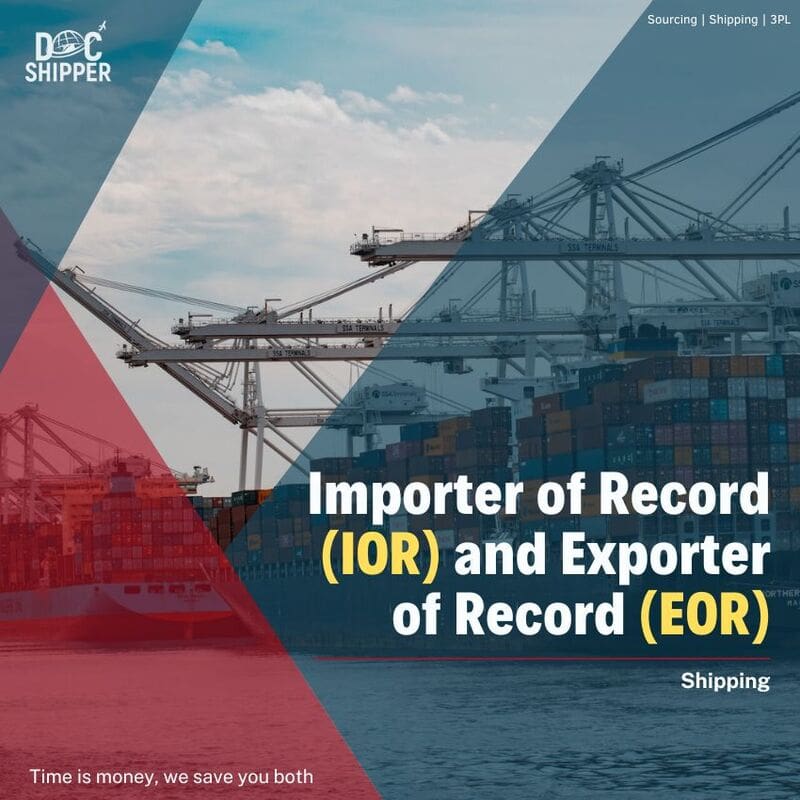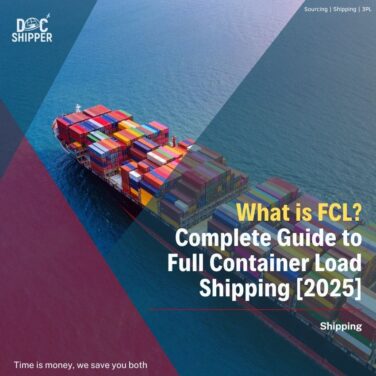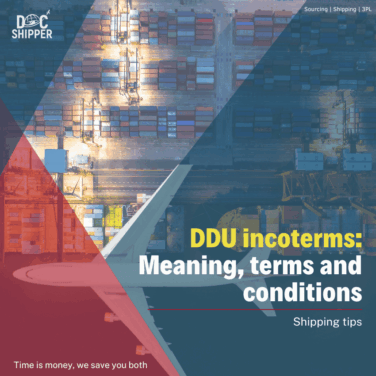In the world of global trade, there are two terms that play a significant role in ensuring successful cross-border transactions: IOR (Importer of Record) and EOR (Exporter of Record). These terms are essential for maintaining the flow of goods between countries without complications. This article aims to provide a comprehensive understanding of IOR and EOR, their functions, and their importance in facilitating smooth international business operations. Whether you’re an experienced trader or new to global commerce, this exploration of IOR and EOR will offer valuable insights for navigating the complexities of cross-border trade.
What is an importer of record?
Importer of Record (IOR) refers to the entity or individual that takes legal responsibility for importing goods into a specific country. In international trade, the IOR is responsible for complying with all customs, taxes, and import regulations in the destination country. They play a critical role in ensuring that the goods are imported legally and smoothly.
What are Importer of Record services?
The IOR holds the legal obligation for the accuracy of the import documentation, payment of duties and taxes, and adherence to any applicable customs procedures. Here’s why the role of the Importer of Record is essential to global trade:
The significance of the Importer of Record (IOR) in the realm of global trade cannot be overstated, and here’s why:
Legal Compliance
The IOR plays a pivotal role in ensuring that every import and customs regulation is adhered to.
This commitment to compliance significantly minimizes the risk of potential delays or penalties during the intricate customs clearance phase. With the IOR at the helm, the intricate web of import and customs laws is navigated seamlessly, allowing goods to traverse borders unhindered.

Efficiency in Customs Procedures
The IOR’s expertise shines through in its ability to expertly maneuver through complex customs procedures. This proficiency translates into a smoother and faster process for commodities to journey across international borders. By understanding the intricate details of varying customs requirements, the IOR facilitates the unimpeded flow of goods, benefiting all parties involved.
Risk Management
Assuming the role of the Importer of Record goes beyond mere procedural duties; it involves accepting legal responsibility. This pivotal aspect means that the IOR takes on the burden of ensuring customs compliance. This calculated move holds a twofold advantage: firstly, it empowers exporters and other stakeholders to transfer the complex risk associated with customs regulations to a seasoned professional. Secondly, it provides a safety net that shields businesses from the potentially adverse consequences of non-compliance.
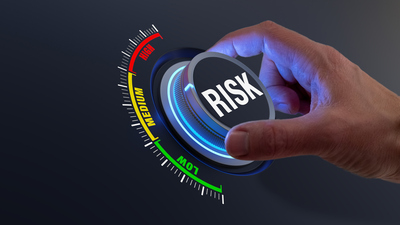
What are importer of record responsibilities?
The responsibilities of the Importer of Record (IOR) encompass a series of crucial tasks that are integral to the successful and compliant importation of goods.
Those are the key responsibilities that fall within the purview of the IOR:
Import Compliance
One of the primary roles of the IOR is to ensure strict adherence to all import-related laws, regulations, and requirements. This includes accurately and transparently declaring the nature, quantity, and value of the imported products. The IOR must also navigate the complex web of importation regulations to determine the applicable taxes, duties, and tariffs and ensure their timely and accurate payment.
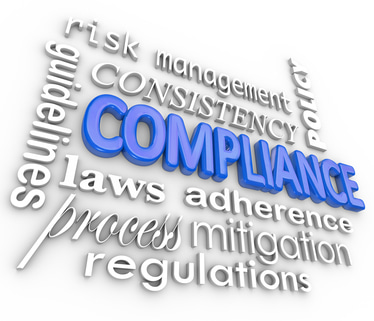
Liability and Accountability
The IOR assumes legal responsibility for the imported goods. This translates into accountability for any customs violations, discrepancies, or non-compliance issues that may arise during the import process. To mitigate these risks, the IOR must exercise due diligence in verifying the accuracy of information provided, including product classifications and valuation.
Risk Mitigation
A core responsibility of the IOR is to proactively manage and mitigate potential risks associated with the importation process. This includes preventing errors in documentation, ensuring compliance with applicable regulations, and addressing any discrepancies that may arise. By taking these precautionary measures, the IOR helps avoid delays, fines, or even confiscation of goods.

Documentation Management
The IOR is tasked with overseeing the meticulous preparation and submission of all required documentation to customs authorities. This includes ensuring that import permits, licenses, certificates, and any other necessary paperwork are complete, accurate, and submitted within stipulated timeframes.
Effective Communication
Serving as a linchpin between various parties involved in the import transaction, the IOR facilitates seamless communication. This encompasses liaising with customs officials, coordinating with exporters, collaborating with freight forwarders, and engaging with customs brokers. This communication ensures that all stakeholders are aligned, leading to a streamlined import process.

Siam Shipping Info
SIAM Shipping info : If your business is outside the EU, and you’re eager to engage in cross-border trade, the complexity of customs regulations might have you considering the roles of IOR and EOR. Look no further than DocShipper! We understand that the nuances of IOR and EOR can be confusing. If you’re seeking clarity on the distinctions between these roles, we’re here to help.
Don’t hesitate to contact-us using the form below or call us directly.
What is an exporter of record?
Exporter of record (EOR) is the opposite of IOR. It refers to the entity or individual that holds legal responsibility for exporting goods from a specific country to an international destination. The EOR ensures compliance with all export regulations and requirements in the country of origin.
What are Exporter of Record services?
In international trade, the Exporter of Record (EOR) is equally significant:
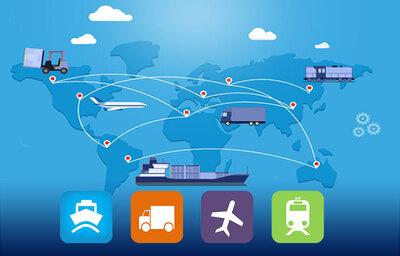
- Export Facilitation: EORs ensure that all required export paperwork is accurately completed, expediting the export procedure.
- Compliance Assurance: The EOR lowers the risk of export-related legal challenges and penalties by adhering to export rules.
- Partner Requirement: Many times, importing nations could call for the designation of an EOR to receive and oversee products from particular nations.
What are Exporter of record responsibilities?
The Exporter of Record (EOR), in the context of exporting goods, assumes crucial functions and obligations that support the smooth movement of goods across international boundaries. Examine the key duties performed by the EOR:
Export Compliance
The EOR plays a central role in ensuring strict adherence to all foreign export laws, regulations, and trade restrictions. This requires careful inspection to make sure that the products being exported comply with the export authorization guidelines and allowed trade restrictions. The EOR is also responsible for accurately filling out the necessary export documentation, and making sure that the information provided is correct and consistent with rules.
Legal Accountability
As the party responsible for overseeing the exportation process, the EOR assumes legal accountability for the accuracy and compliance of the exported goods. Any export-related infractions, errors, or deviations from regulations could lead to legal repercussions, making it imperative for the EOR to exercise diligence and caution in overseeing the export process.
Document Management

The EOR serves as the focal point for gathering and managing the crucial paperwork that goes with exported goods. Important components of this documentation include packing lists, business invoices, certificates of origin, and export permits. For the customs clearance procedure in the destination country to go smoothly, these documents must be carefully prepared and delivered on time.
Risk Mitigation
A core responsibility of the EOR is to anticipate and mitigate potential risks associated with the exportation process. This includes ensuring that the goods being exported are properly classified, valued, and compliant with destination country regulations. By proactively addressing potential risks, the EOR helps minimize the chances of customs delays, fines, or shipment disruptions.
Siam Shipping Tip
SIAM Shipping Tip :Choosing between IOR and EOR can be confusing, and picking the wrong one might affect how your business works worldwide. That’s where DocShipper comes in! We’re experts at making things clear. We’ll help you figure out the right choice, tailored to what you need. You will know what’s best for your business to succeed.
Contact us or call us now and let us handle this process.
Importer of Record vs Exporter of Record
Although they are complementary, the IOR and EOR differ in several aspects:| Aspect | Importer of records IOR | Exporter of records EOR |
| Definition | Entity responsible for importing goods into a country and complying with customs regulations. | Entity responsible for shipping goods out of a country and ensuring compliance with export regulations. |
| Responsibilities |
Ensuring legal compliance with import and customs laws. Managing customs clearance process. Assuming liability for customs duties and taxes. |
Ensuring adherence to export laws and regulations. Handling export documentation. Managing export customs procedures. |
| Risk Management | Accepts legal responsibility for customs compliance and associated risks. | Bears the risk of export compliance and any related penalties. |
| Key Role | Facilitates the smooth entry of goods into a foreign country. | Enables the hassle-free exit of goods from the home country. |
| Liability | Assumes responsibility for paying import duties, taxes, and other fees. | Manages potential export tariffs, taxes, and compliance-related costs. |
| Trade Documentation | Manages import-related documentation and customs paperwork. | Handles export-related documentation and trade paperwork. |
| Importance | Ensures that goods meet entry requirements and clear customs efficiently. | Ensures that goods meet exit requirements and smoothly leave the country. |
Why choose between IOR and EOR, when you can choose both!
Making the choice between Importer of Record (IOR) and Exporter of Record (EOR) can seem like a difficult process with significant consequences for your company’s international operations. But do not worry; with DocShipper on your side, that choice need not be difficult. As part of our dedication to your success, we have created a special package that combines the greatest IOR and EOR services. Consider the opportunities that will open up as we effortlessly combine the benefits of stress-free imports and exports into a single, unified solution.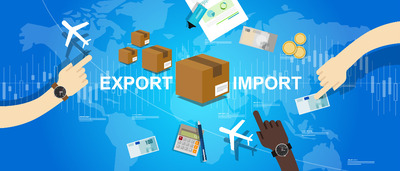 At DocShipper, we carry the burden of handling the complex requirements of detailed documentation and customs compliance. This frees you up to focus on your core business operations, which are what really count. Global trade’s complexity shouldn’t ever be a barrier to your success, and with our knowledge of both IOR and EOR, you are prepared to meet these problems head-on.
Think about the assurance that comes from having a seasoned team that is knowledgeable about the nuances of both IOR and EOR. You may feel secure knowing that DocShipper’s comprehensive approach equips you to succeed as you negotiate the complex environment of international trade. Don’t compromise; instead, embrace the ease and effectiveness of choosing both IOR and EOR by utilizing the comprehensive solution provided by DocShipper. Nothing less than success is deserving of your company.
At DocShipper, we carry the burden of handling the complex requirements of detailed documentation and customs compliance. This frees you up to focus on your core business operations, which are what really count. Global trade’s complexity shouldn’t ever be a barrier to your success, and with our knowledge of both IOR and EOR, you are prepared to meet these problems head-on.
Think about the assurance that comes from having a seasoned team that is knowledgeable about the nuances of both IOR and EOR. You may feel secure knowing that DocShipper’s comprehensive approach equips you to succeed as you negotiate the complex environment of international trade. Don’t compromise; instead, embrace the ease and effectiveness of choosing both IOR and EOR by utilizing the comprehensive solution provided by DocShipper. Nothing less than success is deserving of your company. Siam Shipping Alert
SIAM Shipping Alert :At DocShipper, we handle all the ins and outs of your import and export shipments. That’s why we’re excited to share valuable tips with you for successfully bringing in and sending out goods.
If you want more tips under IOR and EOR don’t hesitate to contact us using the form below or call us directly.
FAQ | Importer of Record ( IOR) VS exporter of Record (EOR)
Read more
Looking for more? These articles might interest you:
SIAM Shipping info: Do you like our article today? For your business interest, you may like the following useful articles :
- Latest Shipping & Freight forwarding market updates [May 2023]
- What is FCL? [Full Guide: LCL – Containers – Incoterms]
- What is a Shipper’s Letter of Instruction and how to complete it?
- What are the latest Supply chain updates for April/May 2023?
Need Help with Logistics or Sourcing ?
First, we secure the right products from the right suppliers at the right price by managing the sourcing process from start to finish. Then, we simplify your shipping experience - from pickup to final delivery - ensuring any product, anywhere, is delivered at highly competitive prices.

Fill the Form
Prefer email? Send us your inquiry, and we’ll get back to you as soon as possible.
Contact Us





